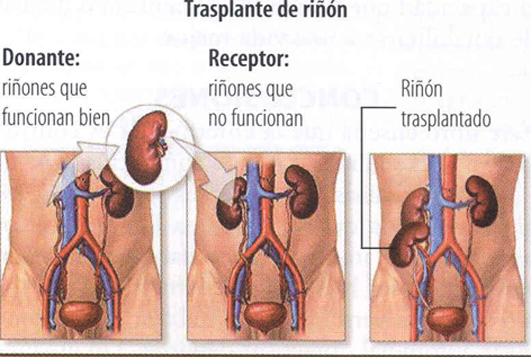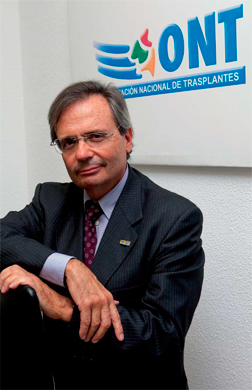In this month of February 2016, the 100,000th organ transplant, in the history of Spain, took place, at the Dr. Peset Hospital, in Valencia (East of Spain). It was a renal transplant whose recipient works favorably. A symbolic figure, that the day to day has passed in silence --a date of 15 February, 116 have already been made more transplants--, but also a "Kabbalistic figure", worth celebrating, according to the director of the National Organization transplants (ONT), Rafael Matesanz.

Transplant of kidney

Rafael Matesanz
This round number "is to relive 100,000 moments of anguish; 100,000 moments of joy and 100,000 new opportunities", says Matesanz.
"It is a figure, that adds value to the enormous effort of Spanish society, donors and their families and the health system". "It is worth the effort remembering and continue encouraging people, to these small miracles, that transplants are, still possible ", adds Matesanz, in an interview, with Europa Press.
They are more than 100,000 new opportunities, 3,689 of them given to children, and Spain has reason to celebrate their generosity. World leader, in organ donation and transplantation, since 24 years ago, it returned to beat its own record, in 2015, reaching 39.7 donors per million population and a total of 4,769 patients transplanted, in 2015, an average of 13 transplants per day, more than one, every two hours.
"It will not be necessary to wait another 50 years", to have another 100,000 transplants performed successfully, consider Matesanz, who calculates a greater future progression. oubled; If we were at the current rate, it would take about 20 years; but, as it is expected to continue incre "At the rate, that we are going, it is possible that, within 15 years, the number has been dasing, I estimate that we will have 200,000 transplants, in 15 years".
The truth is that, since the creation of the ONT, more than half a million people have been benefited with transplant of organs, tissues or cells. Since the figure, released the last Wednesday, we must add the more than 400,000 transplants of tissues and cells, also made in Spain.
"The transplants of tissue are more difficult to count, but our total estimate suppose half a million Spaniards, who have received some type of transplant however small", says Matesanz.
Of the total, about their distribution by organs, 62,967 are kidney, 23,881 of liver, 7,616 cardiac, 3,824 pulmonary, 1,703 pancreatic and 125 of bowel.
The average waiting time, in Spain, for a transplant, varies depending on each organ. So, in the case of lung, it ranges from five to six months; in heart, are three months; the time for liver is among four and five months; in the pancreas, nine and ten months; and renal, precisely the defendant, the waiting time is among 15 and 18 months, on average.
The Spanish transplant system is a network of 186 hospitals, approved for organ donation and 43 for performing transplants (ten of them have some program for children transplant), distributed through all the autonomous communities.
Well. I am proud of being Spaniard, after knowing this news. And I hope that many other countries are able to work hard, in order to offer such transplants as Spain does.
Until my next post, kind regards,
Luis.
Sponsored by Costaluz Lawyers.
Please click below:
